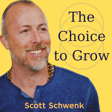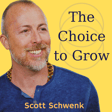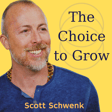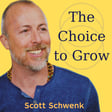
From Me to We: Unleashing the Miraculous for Global Change with Lynne McTaggart
In this riveting conversation, Scott Schwenk welcomes journalist, award-winning author, and intention researcher Lynne McTaggart, known for her groundbreaking books The Field, The Intention Experiment, The Power of Eight and more. Together, they explore the potent science and consistently miraculous results of focused group intention, consciousness beyond the brain, and how shifting our perspective from “me” to “we” may just heal the planet. From the quantum field to collective healing experiments, this episode dives deep into how intention and interconnection can reshape our reality.
Lynne McTaggart, one of the central authorities on the new science and consciousness, is the award-winning author of seven books, including the worldwide bestsellers The Field, The Intention Experiment and The Power of Eight. She is also cofounder of the international magazine What Doctors Don’t Tell You (www.WDDTY.com), and the architect of the Intention Experiments, a web based “global laboratory” to test the power of intention to heal the world.A highly sought after public speaker, Lynne is consistently listed as one of the world’s 100 most spiritually influential people.
Scott Schwenk
Scott’s teachings, courses and master coaching guide leaders, seekers and creatives to explore the embodiment of their deepest selves in service of thriving on all levels of being, both individually and relationally.
You can receive a free guided meditation and explore Scott’s courses, workshops, retreats, training and master coaching at https://scottschwenk.com and can find him on Instagram @thescottschwenk.



